Do Mandarins Ripen Off the Tree? Understanding the Ripening Process
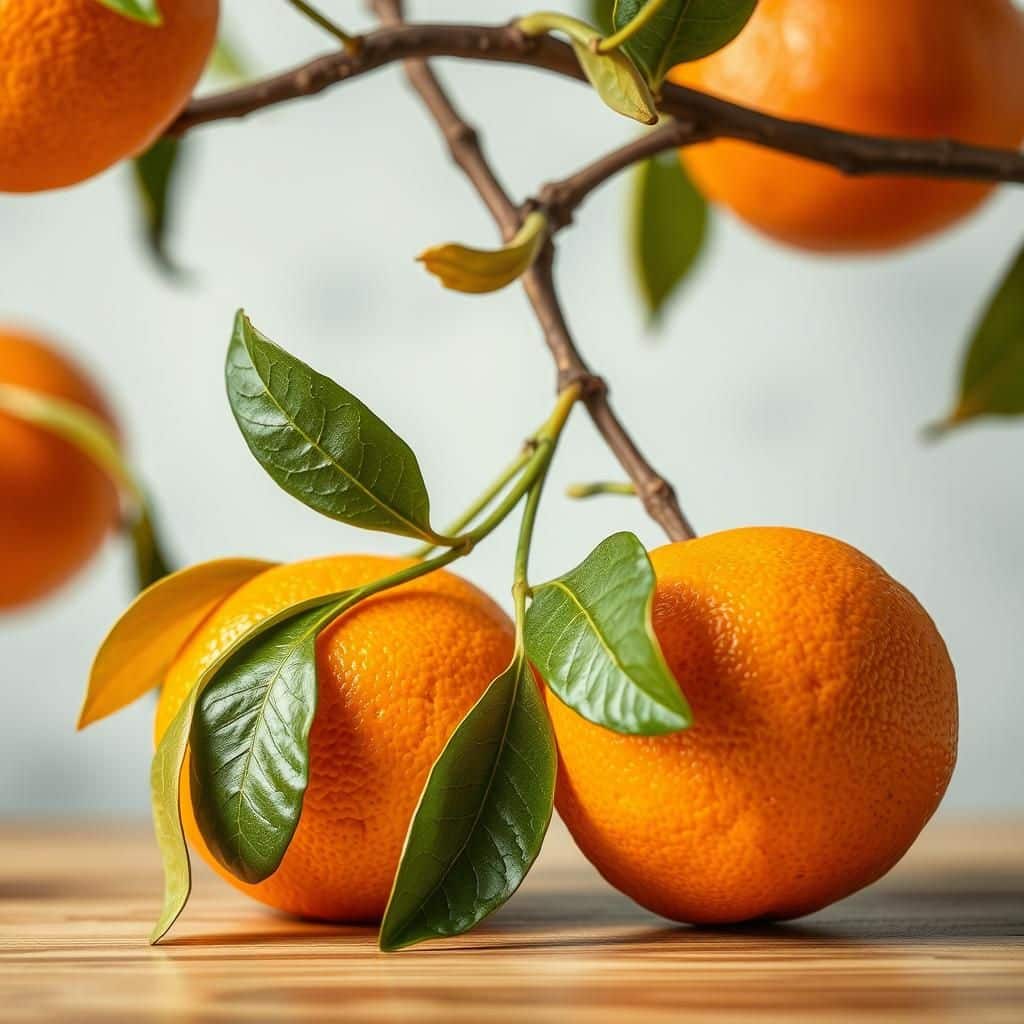
Mandarins are a popular citrus fruit known for their sweet taste and vibrant color. However, a common question among fruit enthusiasts and growers alike is whether mandarins continue to ripen after being harvested. Understanding the ripening process of mandarins is essential for maximizing flavor and quality. In this article, we will explore the intricacies of mandarin ripening, examining factors such as ethylene production, environmental conditions, and the fruit's physiology. By delving into this fascinating topic, we aim to provide valuable insights for consumers and growers, ensuring that every mandarin enjoyed is at its peak ripeness, whether picked straight from the tree or enjoyed at the table.
Do Mandarins Ripen Off the Tree?
Mandarins, like many other citrus fruits, do not continue to ripen significantly after they are harvested; instead, they reach their peak ripeness while still attached to the tree. Consequently, the sugar content and flavor of mandarins are best when they are picked at the right time. Once removed from the tree, mandarins may soften slightly or change in color, but they will not undergo the complex metabolic processes responsible for further ripening. Therefore, for optimal taste and quality, consumers are encouraged to choose mandarins that have been fully ripened on the tree.
Understanding the Ripening Process
The ripening process of mandarins is influenced by several factors, including temperature, humidity, and light exposure. When on the tree, mandarins undergo physiological changes driven by the plant's natural processes, which result in the accumulation of sugars and the breakdown of organic acids. Once harvested, these processes slow down, meaning that mandarins are not able to enhance their flavor significantly post-harvest. That's why picking them at the right time is crucial for achieving the best taste.
Harvesting Techniques
Proper harvesting techniques are essential for maintaining the quality of mandarins. Farmers typically harvest mandarins by hand to avoid damaging the fruit. Careful timing of the harvest is also important; mandarins are best picked when they exhibit a vibrant orange color and are slightly soft to the touch, indicating optimal sugar levels. Using tools such as clippers, harvesters can remove the fruits without bruising, helping ensure that the mandarins maintain their quality during transport and storage.
Storage Conditions
Once harvested, the storage conditions of mandarins play a significant role in preserving their quality. Mandarins should be kept in a cool, dry place to extend their shelf life. In suitable conditions, such as being stored at around 45°F to 50°F (7°C to 10°C) with proper ventilation, mandarins can last for several weeks. However, keeping them in warmer temperatures can lead to faster spoilage, causing loss in texture and flavor. It's crucial to store mandarins away from other fruits to prevent ethylene exposure, which may accelerate ripening.
Flavor Changes After Harvesting
After mandarins are harvested, slight flavor changes may still occur, primarily due to aging. While the fruit does not ripen further, it can still develop a smoother texture as the skin softens slightly. However, they tend to lose some acidity over time, which can make the fruit taste sweeter or mellow. Proper storage can help minimize degradation, but it's important to note that flavor changes will not add the complex notes typically developed during the ripening on the tree.
The Importance of Picking Timing
Timing is critical in the harvesting of mandarins. The window for optimal picking is narrow, as mandarins must be harvested at their peak ripeness to ensure the best flavor and quality. If picked too early, they may lack sweetness and be overly acidic, while fruit left too long on the tree may become overripe and start to decay. Therefore, understanding the right signs of ripeness, including color and firmness, is vital for growers to ensure that consumers receive high-quality mandarins.
| Key Factor | Description |
|---|---|
| Ripening Process | Occurs while fruits are on the tree; minimal after harvesting. |
| Harvesting Techniques | Handpicked to avoid damage, ensuring quality. |
| Storage Conditions | Cool, dry place to extend shelf life. |
| Flavor Changes | Can soften slightly, but not ripen further post-harvest. |
| Picking Timing | Critical for optimal flavor and quality; must be done at peak ripeness. |
Do mandarin oranges ripen after being picked?
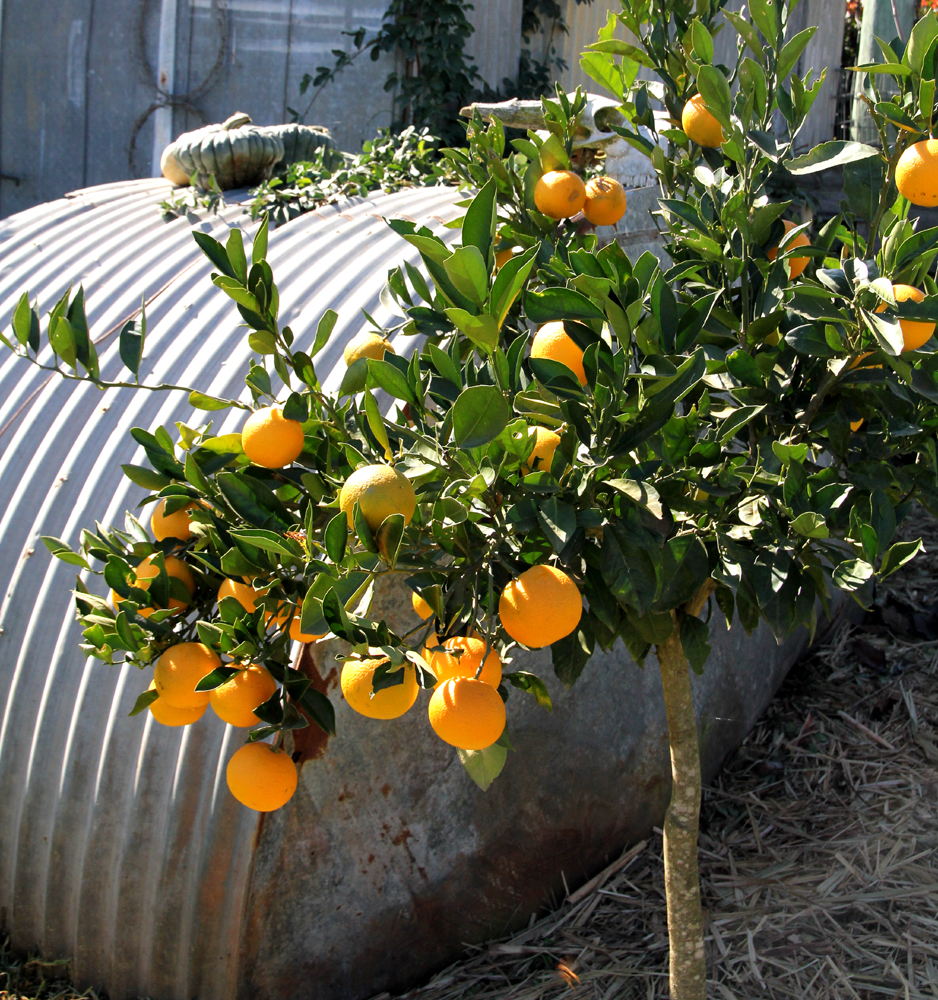
Mandarin oranges do not ripen significantly after being picked. This fruit is classified as a non-climacteric fruit, which means that once it has been harvested, the process of ripening does not continue in the same way it does for climacteric fruits like bananas or avocados. The initial ripening occurs on the tree, where the fruit develops its flavor, color, and sweetness. Once picked, mandarin oranges will maintain their quality for a limited time, but will not develop additional sweetness or flavor.
The Ripening Process of Mandarin Oranges
The ripening process of mandarin oranges is largely dependent on the conditions present while still on the tree.
- Photosynthesis: While on the tree, the fruit absorbs sunlight, which plays a crucial role in developing sugar levels.
- Water and Nutrients: The tree provides essential nutrients and water, contributing to the overall flavor and juiciness of the fruit.
- Time on Tree: Mandarin oranges typically require a specific amount of time on the tree to reach their optimal ripeness.
Storage and Shelf Life
After being harvested, mandarin oranges require proper storage to maintain their quality, as they do not ripen further.
See also:
- Temperature: Keeping them at a cool temperature (around 45°F to 50°F) can help slow down the degradation process.
- Humidity: Maintaining humidity can prevent them from drying out and losing flavor over time.
- Duration: Mandarins can typically last for about one to two weeks in storage, depending on conditions.
Flavor Development
Mandarin oranges do not continue to develop their flavor after being picked—what you taste is what you get.
- Initial Flavor: It is essential to harvest mandarins at the right time to ensure optimal sweetness and flavor.
- Post-Harvest Changes: While some fruits may change chemically after being picked, mandarins will not experience a flavor enhancement.
- Consumption Timing: It is best to consume them shortly after picking for maximum flavor.
Comparative Analysis with Climacteric Fruits
Understanding the differences between mandarin oranges and climacteric fruits helps in comprehending their post-harvest behavior.
- Climacteric Fruits: Bananas, avocados, and tomatoes can ripen and develop flavor after being harvested due to the release of ethylene gas.
- Non-Climacteric Characteristics: Mandarins, like most citrus fruits, do not produce ethylene in significant amounts, stopping ripening post-harvest.
- Harvest Timing Importance: For non-climacteric fruits, careful consideration of when to harvest is crucial to achieving the best flavor profile.
Best Practices for Enjoying Mandarin Oranges
To fully enjoy mandarin oranges, understanding the best practices for selection and consumption is key.
- Choosing Fresh Fruits: Look for mandarins that are firm, have bright skin, and are free from blemishes.
- Proper Handling: Avoid squeezing the fruit excessively to prevent bruising, which can lead to faster spoilage.
- Serving Ideas: Fresh mandarin oranges can be enjoyed alone, in salads, or as dessert garnishes, highlighting their natural sweetness.
Is it safe to eat unripe mandarins?
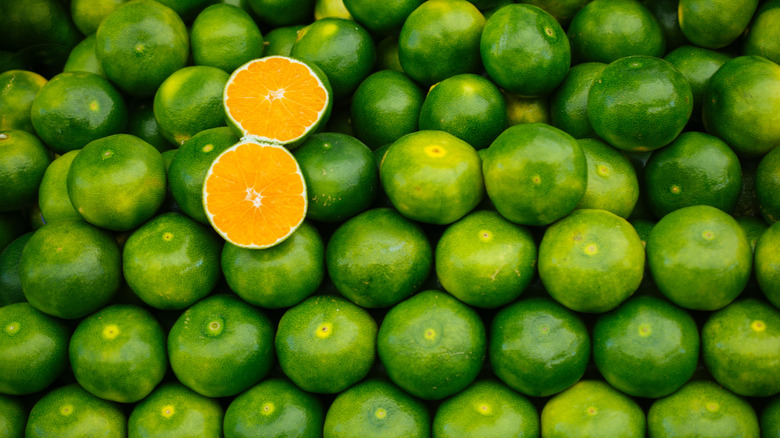
Eating unripe mandarins is generally not recommended for several reasons. While they are not typically toxic, unripe mandarins are harsh, bitter, and not as sweet as their fully ripened counterparts. This taste difference can lead to unpleasant experiences when consumed. Additionally, unripe fruits often contain compounds that can lead to digestive discomfort in some individuals.
The key factors to consider include:
- Taste: Unripe mandarins are often sour and lack the sweetness typical of ripe ones.
- Digestibility: Some people may experience stomach upset from eating unripe fruit due to its high acidity and potential for unripe compounds.
- Nutritional Value: The nutritional content may also differ, as ripening can enhance flavor and increase some nutrients.
Understanding the Ripening Process
The ripening of mandarins is a natural process that transforms the fruit's chemical composition, impacting taste, texture, and nutrient profile. During ripening:
- The sugar content increases, leading to a sweeter taste.
- Acids decrease, making the fruit less sour and more palatable.
- Vitamins and antioxidants develop, enhancing the nutritional value.
Health Risks of Consuming Unripe Mandarins
While not poisonous, unripe mandarins may lead to some health issues. Possible risks include:
- Digestive Distress: High acidity can cause stomach pain or cramps in sensitive individuals.
- Allergic Reactions: Some people may experience allergic reactions to compounds present in unripe fruits.
- Nutritional Absorption: Consumption of unripe fruits may interfere with the absorption of certain nutrients.
Signs of Ripe Mandarins
To ensure that you are eating mandarins at their best, look for specific signs of ripeness:
- Color: Ripe mandarins typically display a vibrant orange color.
- Texture: The skin should feel slightly soft, indicating juiciness.
- Aroma: A fragrant citrus smell indicates ripeness and flavor readiness.
The Role of Varieties
Different mandarin varieties can exhibit various ripening characteristics. Here are a few notable types:
See also: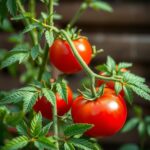
- Clementines: Often sweeter with a thinner skin; usually ripen earlier.
- Satsumas: Known for their easy peeling and juicy flesh; better flavor when fully ripe.
- Tangerines: Slightly smaller, with a unique flavor profile; ripeness affects sweetness significantly.
Culinary Uses for Unripe Mandarins
Although it's not recommended to eat them raw, unripe mandarins can still be utilized in cooking:
- Marinades: Their acidity can enhance the flavor of meats and vegetables.
- Chutneys: Unripe mandarins can be cooked down with sugar and spices to create unique condiments.
- Infusions: Use the zest in drinks or sauces for a hint of bitterness and acidity.
Do mandarins ripen off the vine?
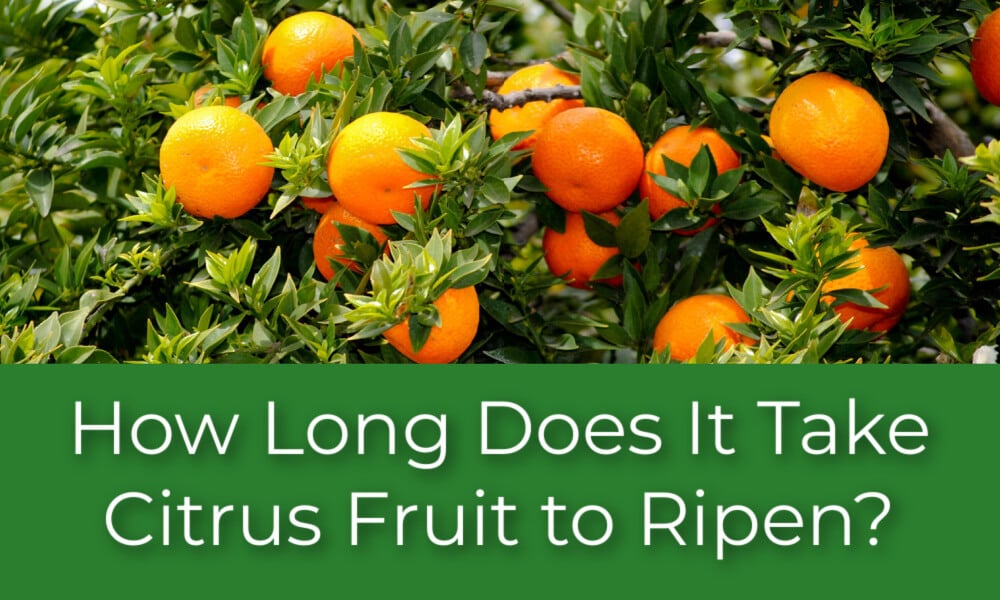
Mandarins, like many citrus fruits, are characterized by their unique growth and ripening processes. To answer the question, mandarins do not continue to ripen significantly once they have been picked from the tree, although they may undergo some changes in texture and sweetness if stored properly.
The ripening process of mandarins is closely linked to their exposure to sunlight and the nutrients they receive while still attached to the vine. Once harvested, the fruit may start to deteriorate rather than ripening in the traditional sense, meaning that they won't become sweeter or develop more flavor significantly after they are removed from the tree.
Understanding Ripening in Mandarins
The ripening process is a critical phase in the life of mandarins, heavily influenced by environmental factors while on the tree.
- Ethylene Production: Mandarins produce ethylene gas, which plays a key role in the ripening process.
- Photosynthesis: The fruit absorbs sunlight, which is essential for developing the sugars that contribute to the sweetness.
- Soil Nutrients: Nutrients from the soil affect the fruit's growth before it is harvested.
Post-Harvest Behavior of Mandarins
Once mandarins are picked, their physiological changes vary compared to the time they were on the tree.
- Limited Ripening: They may not ripen further but can slightly soften and change in taste.
- Storage Conditions: The environment in which they are stored can affect their texture and flavor development.
- Decaying Process: If exposed to improper conditions, they may rot instead of ripening.
Factors Influencing Ripening Off the Vine
Several factors contribute to the limited ripening of mandarins once they are harvested.
- Temperature: Warm temperatures can lead to rapid deterioration.
- Humidity: High humidity may promote mold, affecting the quality of the fruit.
- Time since Harvest: The freshness of the fruit at the time of consumption is critical for its quality.
Best Practices for Storing Mandarins
To maintain the quality of mandarins post-harvest, specific storage practices should be followed.
- Cool and Dry Place: Store them in a cool, dry area away from direct sunlight.
- Avoid Stacking: Do not stack mandarins on top of each other to prevent bruising.
- Regular Checks: Inspect them regularly for any signs of spoilage to ensure quality.
Comparative Analysis with Other Citrus Fruits
Mandarins have some similarities and differences compared to other citrus fruits regarding ripening off the vine.
- Oranges: Similar to mandarins, oranges also do not ripen significantly after being picked.
- Lemons: Lemons may also show slight changes post-harvest but do not develop sweetness.
- Grapefruits: Grapefruits have a minimal ripening process post-harvest similar to mandarins.
Questions from Our Readers
Do mandarins ripen after being picked from the tree?
Mandarins typically do not ripen significantly after being harvested. Once they are picked, their sugar content and flavor will not enhance much, which is why it is important to harvest them at the right time to ensure they are fully matured.
How can I tell if mandarins are ripe on the tree?
To determine if mandarins are ripe, look for a bright orange color and feel for a slightly soft texture when gently squeezed. When the fruit easily comes off the tree with a gentle twist, it usually indicates that they are ready for harvest.
See also:
Can climate affect the ripening of mandarins on the tree?
Yes, climate does play a significant role in the ripening process of mandarins. Ideally, mandarins require warm temperatures and adequate sunlight to produce high-quality fruit. Conversely, excessive rain or cool temperatures can delay or adversely affect their ripening.
What is the best way to store mandarins after harvesting?
After harvesting, the best way to store mandarins is in a cool, dry place with good ventilation. Keeping them in the refrigerator can help extend their shelf life, but it is advisable to consume them within a few weeks for optimal freshness and flavor.

If you want to read more articles like Do Mandarins Ripen Off the Tree? Understanding the Ripening Process, we recommend you check out our Seeds category.
Leave a Reply
Related Articles